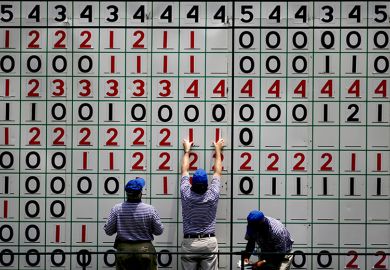Requiring academics to justify the importance of their research via “some kind of slogan that somebody in a pub is going to be able to repeat” is “much more healthy than the Stefan Collini line that the liberal academy is owed a living by the world”.
That is the view of Michael Dobson, professor of Shakespeare studies at the University of Birmingham and director of the Shakespeare Institute in Stratford-upon-Avon, who said the impact agenda was aimed not so much at changing academics’ behaviour as rewarding them for “stuff they should have been doing already”.
Professor Dobson - speaking ahead of a panel appearance at the Evening Forum to Discuss Research Impact, to be held at Shakespeare’s Globe on 19 April and co-hosted by Times Higher Education - said he thought the UK funding councils had done a “reasonable job” of designing such a system for the 2014 research excellence framework.
But although only one case study was required for every 10 academics, Professor Dobson agreed that in practice, the introduction of impact was likely to make all scholars feel that they needed to be able to produce case studies.
However, that would “not be an entirely bad thing”, he said, and was preferable to Professor Collini’s view - as Professor Dobson interpreted it - that “it is beneath him to think about who ought to be paying”.
Professor Collini, professor of English literature and intellectual history at the University of Cambridge, decried what he sees as the commoditisation of higher education in his latest book, What Are Universities For?
How impact would be defined in the REF was causing “a lot” of disquiet, Professor Dobson admitted, with academics’ general attitude towards the agenda marked by “characteristic levels of good or ill grace, discontent and resigned acquiescence”.
Register to continue
Why register?
- Registration is free and only takes a moment
- Once registered, you can read 3 articles a month
- Sign up for our newsletter
Subscribe
Or subscribe for unlimited access to:
- Unlimited access to news, views, insights & reviews
- Digital editions
- Digital access to THE’s university and college rankings analysis
Already registered or a current subscriber?



